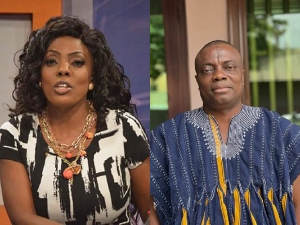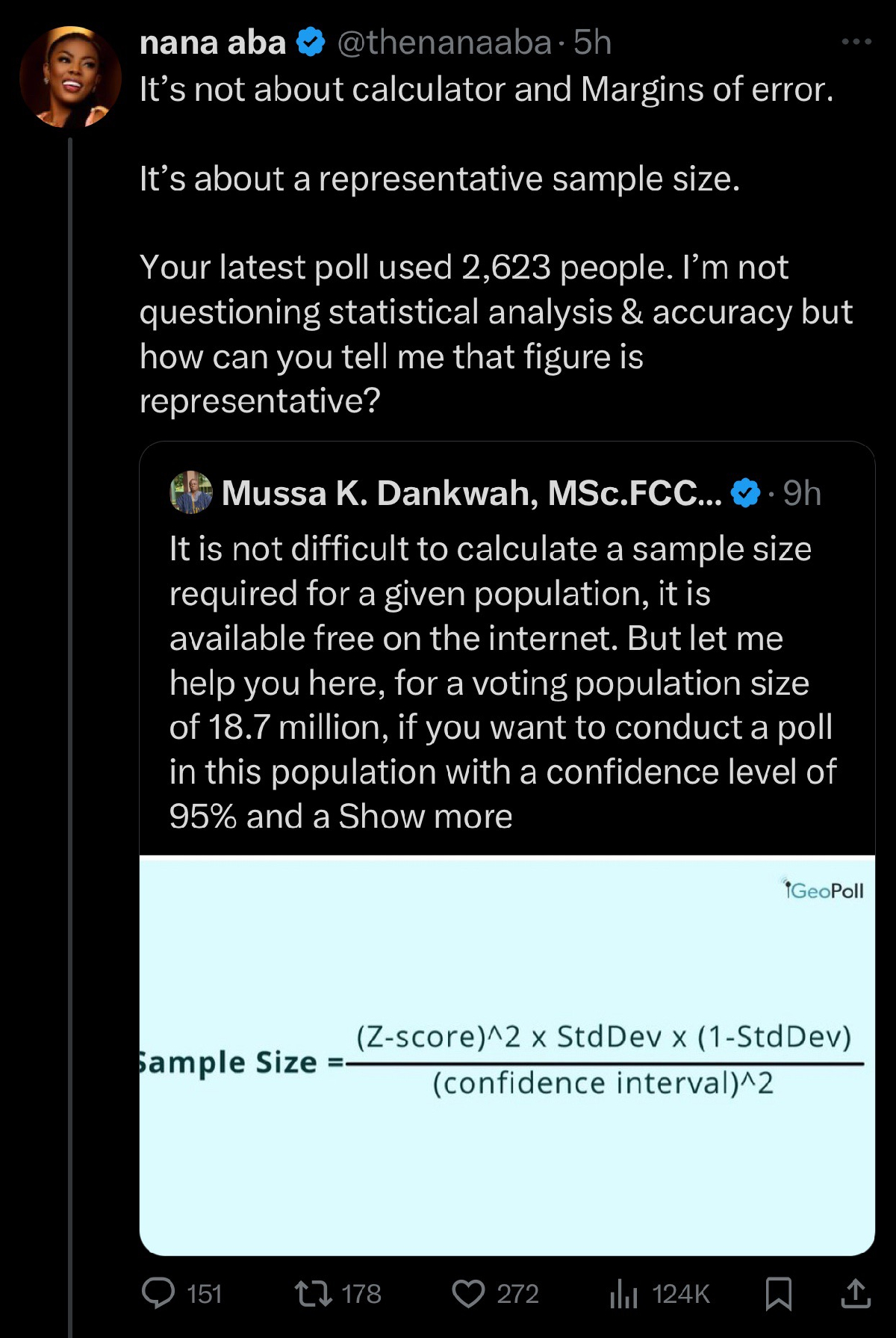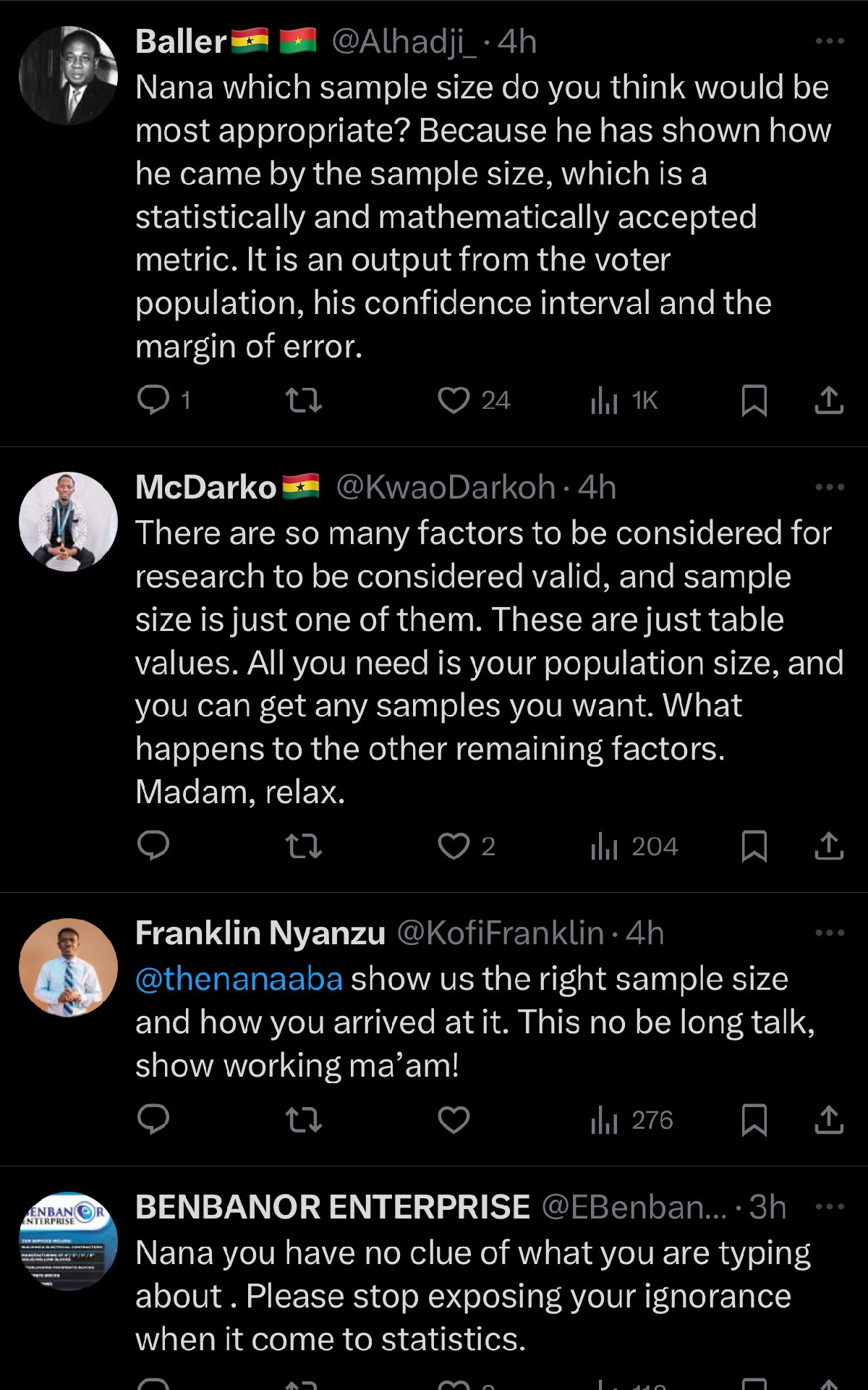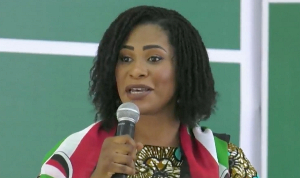Zeqblog Blog of Tuesday, 26 November 2024
Source: Okine Isaac
"Fiery Debate Ensues as Nana Aba Anamoah and Musah Dankwah Clash Over Latest Analytics Poll Result"

Many inferential predictions that show the election's favorite and potential winner have been produced in the final days before voting. One prominent organization that is well-known for creating election-related analytics is Global Info-analytics. The institution's leader, Mr. Musah Dankwah (MD), is well-known for his proficiency in statistics and research.
With 51.2% of all voters surveyed, NDC's John Mahama was in a commanding lead in the most recent poll findings posted on Twitter by Global Info-analytics. After interacting with the post, a number of concerned folks left numerous comments expressing a variety of viewpoints. A considerable percentage of them questioned the reliability of the data utilized for the poll, even if many of them were happy to see the results. Top GhOne TV journalist Nana Aba Anamoah (NAA) also questioned the validity of the findings, sparking a heated argument between herself and the MD.
In order to learn more about how the study's sample size was determined, NAA asked the analytics institution an inquiry. She questioned the survey's data collection methods, which made the results less reliable. She received responses to her inquiries from the institution's boss, which sparked a contentious discussion between them. So far, the two have erupted over this.

NAA: "MD's personal confidence in his polls is fine, but it's worth questioning a lot, including the methodology, when the sample size is a fraction of the electorate."

MD: Finding the sample size needed for a certain demographic is easy and may be done for free online. Allow me to assist you, though. If you wish to survey a population of 18.7 million voters with a 95% confidence level and a 1.9% margin of error, you will need to interview at least 2600 people. The next time you criticize someone's sample size, please take out your calculator and give this a try.

NAA: Calculators and error margins are irrelevant. A representative sample size is at issue. 2,623 people took part in your most recent poll. I don't doubt the correctness or statistical analysis, but how can you affirm that it is representative? How can you be so certain that an analysis of 2600 people can accurately predict the outcome of a choice that will be made by (based on the results of the previous election) over 6 million people, assuming that you are currently utilizing the minimum sample size?

MD: If you have read the report, it provided the confidence level as 95%, it was not hidden. The poll also has margin of error of +-1.86% and I hope you know how to interpret that too. Every poll we conduct provide detail methodology and approach, you must read that first.
NAA: I have read it. Thoroughly. Granted that you would want to statistically assume the over 12 million that vote is likely to move in the manner of the poll with that margin of error, the truest position on this matter is that the conditions are not the same for all the voters. You always find a way not to talk about sample size. Several data analysts have told you to pull the breaks on your over confidence.
Netizens have reacted heavily after interacting with their posts and below are some comments I gathered.














